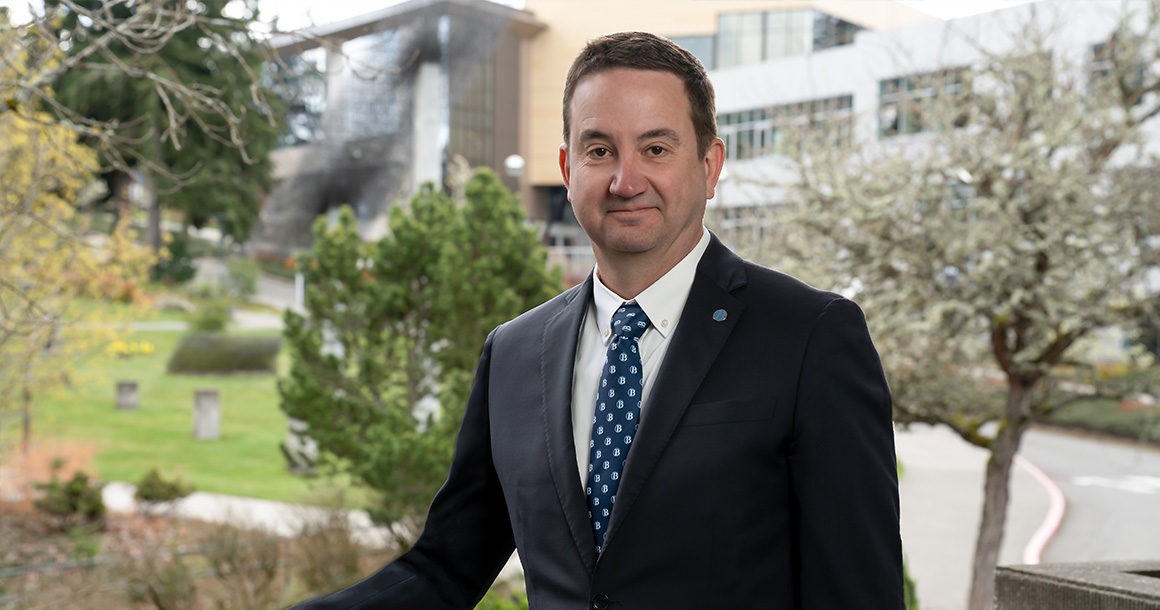Community Colleges Are the Unsung Heroes of American Education
Aug 11, 2024In an era of rising tuition costs and unmanageable student debt, higher education faces intense scrutiny. Debates about whether a college degree is worth the investment are commonplace, as the job market continues to evolve faster than higher education can keep up. As president of Bellevue College, I share these concerns.

(This op-ed was originally published in The Seattle Times. Read it here.)
In an era of rising tuition costs and unmanageable student debt, higher education faces intense scrutiny. Debates about whether a college degree is worth the investment are commonplace, as the job market continues to evolve faster than higher education can keep up. As president of Bellevue College, I share these concerns.
But if people are questioning if a college degree is for them, community and technical colleges are an essential answer.
Community and technical colleges are the unsung heroes of American education. They offer flexible, affordable and accessible pathways to higher education, and equip students with job-ready skills to thrive in a swiftly changing economy.
Community colleges excel in affordability. In 2023, the cost of average annual tuition and fees for a public four-year institution was $9,720. In contrast, the average cost of attending a community college in Washington state is $4,772. This significant cost difference makes education accessible to diverse demographics, including working adults, first-generation college students and those from lower-income families, attracting a racially and culturally diverse student body. We strive to keep tuition rates manageable with robust financial aid packages to reduce financial barriers.
The flexibility offered by community colleges is crucial as students juggle studies with work, family and other commitments. Community and technical colleges provide various scheduling options, including evening, weekend and online classes, allowing students to balance other responsibilities. Community colleges can quickly adapt curricula to meet local labor market needs. Programs in health care, business, technology and cybersecurity are designed with industry partners to ensure graduates are career-ready. There are also different pathways students can take to earn a postsecondary degree. These include stackable certificates, associate degrees and bachelor’s degrees.
The Washington Roundtable estimates that by 2031, 72% of jobs in Washington state will require some form of postsecondary attainment. Yet only about half of Washington students will earn some type of college credential. Community colleges serve as a critical pathway to education and career advancement. They offer credential programs that equip students with skills for immediate employment and provide applied bachelor’s degrees in specialized professional/technical areas. They also offer seamless transfer routes through agreements with universities for students to continue their education.
Community colleges are known for their diverse and inclusive learning environments. The principle of “open access” means everyone is welcome. Whether you never completed a degree and are ready for a midcareer job change or aim to transfer by earning an associate degree, there’s a pathway for you to succeed.
Consider Mykhailo Kuzomka, a 2023 Bellevue College graduate with a bachelor of applied science in applied accounting. He was hired by PricewaterhouseCoopers, one of the largest accounting firms in the world, after emigrating from Ukraine, changing careers and learning English. Or Pooja Jain, a 2013 Bellevue College graduate with a BAS in interior design, who now works at Sechrist Design as a senior interior designer after overcoming the barrier of having a non-U.S. accredited degree. Then there’s Ken Mburu, a 2019 graduate with a BAS in health care management and leadership, who was promoted to supervisor of ancillary specialty services at UW Valley Medical Center after looking for change following a 14-year career.
These stories provide qualitative data that complements the quantitative evidence that the earnings of students with a degree are higher than those who only completed high school.
It’s time to reframe the question of whether higher education is of value or not. Higher education should be evaluated by its ability to provide affordable, accessible and relevant education that empowers individuals and supports communities. Community colleges, with their unique strengths and mission, are essential to meeting these goals.
As families and students plan their educational futures, remember that community colleges are not just an alternative; they may be the answer.
David May is the president of Bellevue College, the largest community college in Washington. Founded in 1966, the institution offers 15 bachelor’s degrees, among other credentials.
